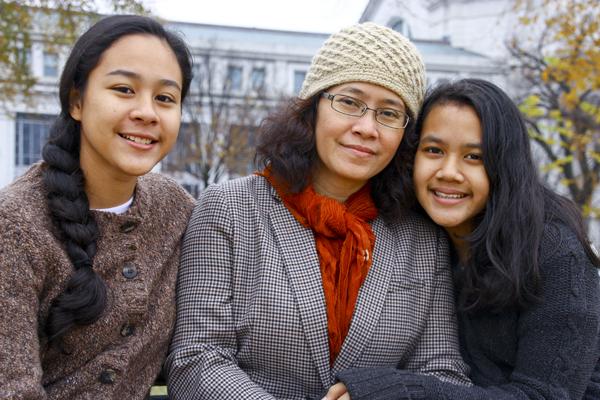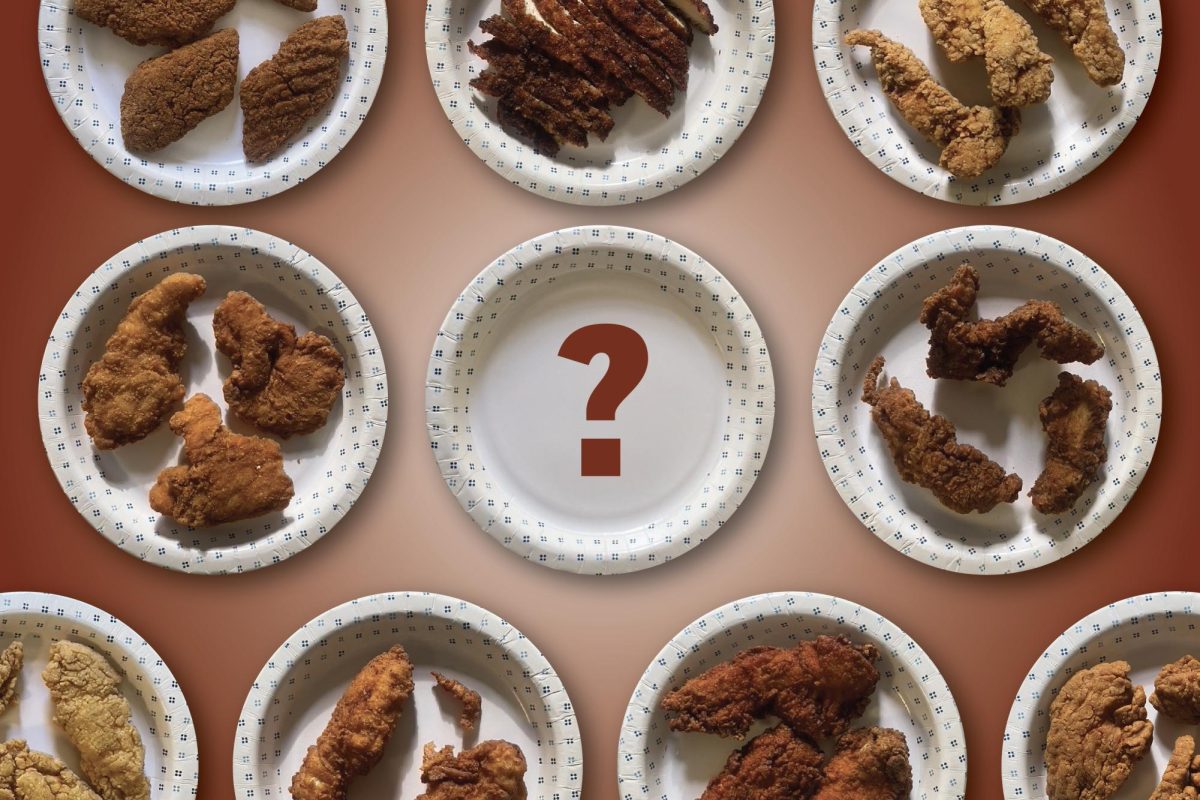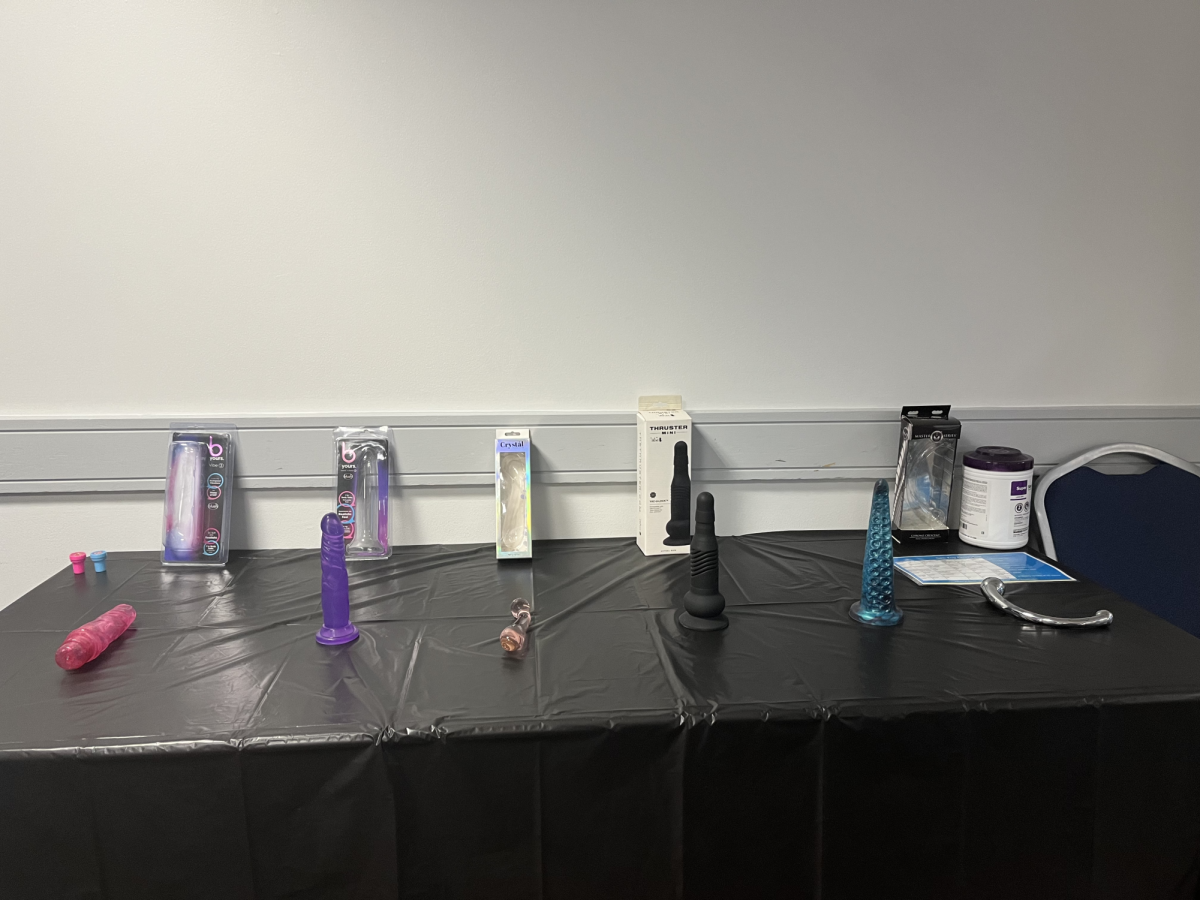When Dian Nugraheni came to the U.S. from Indonesia four years ago, she started documenting the pains and anxieties of life as an immigrant.
Nugraheni, who now serves up sandwiches and bagels from behind the GW Deli counter, worked long hours and double shifts that left her physically exhausted. Her English skills lagged, forcing her to depend on her two daughters for making important decisions like picking an apartment.
But she also made sure to capture silly and absurd parts of her immigrant story in her book, “This is America, Beibeh!” which was published in Indonesia this summer. The novel is sprinkled with levity, diving into the occasionally humorous results of language barriers and cultural immersion.
In one chapter, she remembers asking a stranger on the Metro, “Is the train go to Bikini Bottom?” mistaking the name of Spongebob Squarepants’ fictional underwater city for Foggy Bottom.
Nugraheni’s editor was going to title the book “This is America,” but Nugraheni thought the name did not reflect the contents of her book, the simplistic white cover of which appropriately features a picture of a sandwich in its center.
“It seemed so serious,” Nugraheni told The Hatchet in Indonesian. “My book is a light read and it is written in a more fun and playful tone. So I told him to add the ‘beibeh’ to make it less formal and he liked it.”
Nugraheni said she never intended for her writing to be compiled and published as a book, but she began regularly writing notes on Facebook as a way to keep her friends and family in Indonesia updated about her life in D.C.
Eventually, one of her friends became interested in editing her stories and pitched the book to Kompas, one of the biggest publication firms in Indonesia.
Nugraheni’s move to the U.S. was sponsored by her ex-husband, who petitioned for her and her daughters’ arrival. But soon after she moved, the couple divorced.
The split forced Nugraheni to independently raise her two daughters – Cedar, 15, and Alma, 12 – with minimal English skills and a meager, single income.
“I was somewhat trapped. After I moved here … I had to bear the responsibility of being the backbone of my family,” Nugraheni said. “Say I wanted to continue with my education … I would have to spend money. I can’t afford to do what I want.”
In Indonesia, Nugraheni worked for a taxi company, for a catering business and as a computer distributor. Nugraheni now works overtime in the deli kitchen 10 hours a day, feeding 1,200 to 1,500 customers every day.
She added that because of her overtime and Saturday hours, Sundays are her only opportunity to spend much time with her daughters.
With their mother working 10 hours a day, Cedar and Alma are used to looking out for one another. Cedar often picks Alma up from school and acts as a translator for her mother.
“The reason why I am still in the States even though I am now a single mother – it’s not easy – is because my kids like it better here,” Nugraheni said. “But I am happy that I raised my children here. They’ve both learned to be more responsible and independent living here.”
Like Nugraheni, most of the staff in the deli are immigrants from Indonesia, Vietnam and El Salvador. John Ambrogi, the owner of the GW Deli, said this is because he gets new employees from his current workers.
Nugraheni herself found out about the job from GW Deli employee Setijo Nugroho, who moved to the U.S. in 1999.
“Even if someone were to come to the States without skills, life as an immigrant really isn’t so bad because we have a community here,” Nugroho said. “It really is a matter of learning how to take control of our given circumstances, instead of letting it control us.”
Nugraheni said her personal “hijrah” – or migration – to the U.S. was a move toward “something better,” despite discouraging financial hurdles and severe linguistic barriers.
“I’ve learned to be more polite because people in America are generally more friendly and kind. I’ve also learned to be more disciplined in everything I do,” Nugraheni said. “I’ve learned to be grateful for everything good.”







